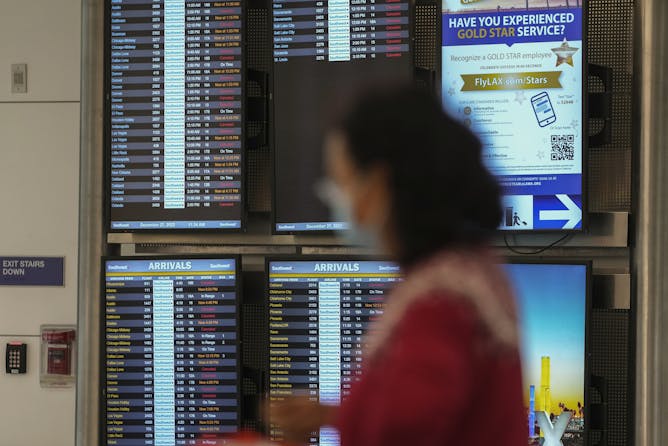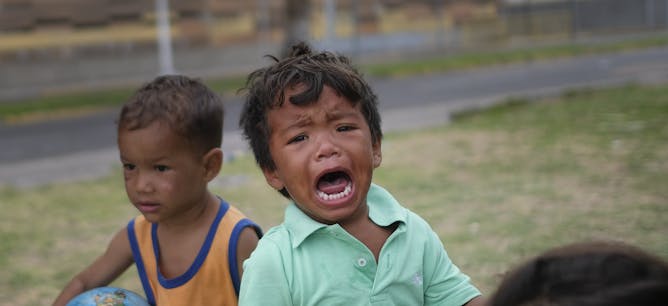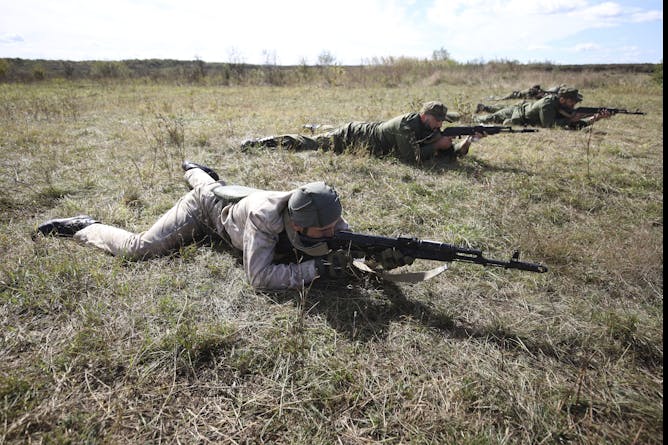|
Over the holidays, a severe winter storm disrupted flights all across Canada and the United States, leaving travellers stranded. The storm exposed a lack of airline preparedness and a failure to put effective disruption management systems in place.
Today in The Conversation Canada, Frédéric Dimanche from Toronto Metropolitan University and Kelley A. McClinchey from Wilfrid Laurier University write about what went wrong over the holidays, and how it can be prevented in the future.
Dimanche and McClinchey argue that the airline chaos can largely be attributed to three main problems: labour, disruption management and communication. In order to prevent similar situations in the future, all three of these areas need to be properly addressed.
They write: “The federal government, airports and airlines have a joint responsibility to improve operations, manage the labour gap and address better customer protection.”
Also today:
All the best,
|

Flight cancellations over the holidays left travellers stranded at airports across North America amid an intense winter storm.
(AP Photo/Damian Dovarganes)
Frédéric Dimanche, Toronto Metropolitan University; Kelley A. McClinchey, Wilfrid Laurier University
After the transportation crisis this past holiday season, apologies from major airlines, airports and government officials are not enough. It’s time to protect passengers from travel companies.
|

A Venezuelan migrant child cries after the police told his family to break up a camp they had set up on the seashore in El Morro, a neighbourhood of Iquique, Chile, in December 2021.
(AP Photo/Matias Delacroix)
Nicolas Ajzenman, McGill University
Increasing fears about crime in Chile can be attributed to the recent influx of immigrants, but research shows those concerns aren’t based in reality.
|

Argentina fans celebrating their team’s World Cup victory walk past a mural of Diego Maradona in Buenos Aires. While shared nationality is a factor, most fans typically think about players in terms of their club team.
(AP Photo/Mario De Fina)
Daniel Rubenson, Toronto Metropolitan University; Chris Dawes, New York University
Studying how shared identities like nationality and club affiliation impact fan support for soccer players can tell us how our group memberships affect our behaviour.
|

Innovations in food systems, like food processing technologies, have enhanced the sensory quality, safety and shelf life of food products.
(Scott Warman/Unsplash)
Chibuike Udenigwe, L’Université d’Ottawa/University of Ottawa
Innovations in food science and technology are well-positioned to address many existing food systems challenges.
|

Des recrues sur un champ de tir près de Krasnodar, dans le sud de la Russie, en octobre 2022. L’opération militaire spéciale russe en Ukraine devient une guerre totale.
(Photo AP)
Alexander Hill, University of Calgary
L’armée russe en Ukraine mène une guerre beaucoup plus intense en artillerie et plus méthodique qu’il y a un an. C’est devenu une guerre totale.
|
COVID-19
|
-
Matthew Woodruff, Emory University
Many questions remain about next steps for US vaccine policy. But the FDA advisory panel’s hearty endorsement of a single-composition COVID-19 vaccine represents a pivotal step.
|
|
Environment + Energy
|
-
Timothy Welch, University of Auckland
The more hard surfaces we build, the more stormwater we need to drain. Auckland must future-proof its urban design as climate change bites.
|
|
Health
|
-
Uwem Friday Ekpo, Federal University of Agriculture, Abeokuta
While Nigeria has made progress in controlling some neglected tropical diseases, it should do more as it carries a heavy burden of these diseases.
|
|
Politics
|
-
Christoph Bluth, University of Bradford
Insider politics: why Germany needed US tanks to be offered to Ukraine.
-
Mark Shanahan, University of Surrey
Both Donald Trump and Joe Biden have been found with classified documents in breach of US law. But there are key differences in each case.
|
|